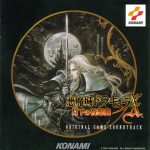
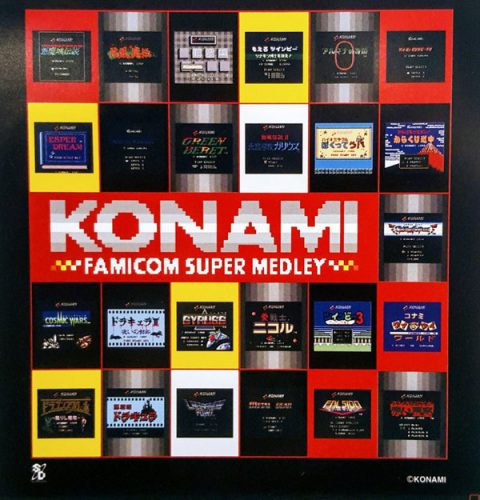
From console, arcade, and card games to fitness clubs, pachinko, feature films, and beyond, Konami is a company with its feet dipped into many industries that’s seen a lot of innovation and changes through the years. In this piece, we’ll be focusing on Konami’s arcade and home video games, covering major milestones from their founding to the present. Insert coin, let’s hit it!
Origins - Konami Jukes into the Arcades
In 1969, self-made businessman Kagemasa Kozuki (who is currently Chairman of the Board) founded the predecessor to Konami in Toyonaka, Osaka as a jukebox rental and repair company. Four years later, Konami Industry Co., Ltd. would be officially incorporated as the business shifted towards creating various arcade amusement machines under the direction of Kozuki and new partners Yoshinobu Nakama, Hiro Matsuda, and Shokichi Ishihara. The name Konami is derived from the first parts of these founders’ last names and also means "small wave" in Japanese. Konami would start releasing proper arcade games in 1978 but the company’s initial lineup wasn’t particularly memorable and consisted of games like Space Invaders clone Space King and the overtly simplistic Block Game. As time went on, things would improve with titles like 1980’s Astro Invader, the first of many Konami games published by Stern Electronics. The next year would be particularly successful for Konami with breakout hits like side-scrolling shoot 'em up Scramble and its sequel Super Cobra, and the standout classic Frogger, which would spawn dozens of sequels and knock-offs and make its way into pop culture as one of the most iconic games of the arcade golden age.
Going Home - Konami on PCs and Consoles
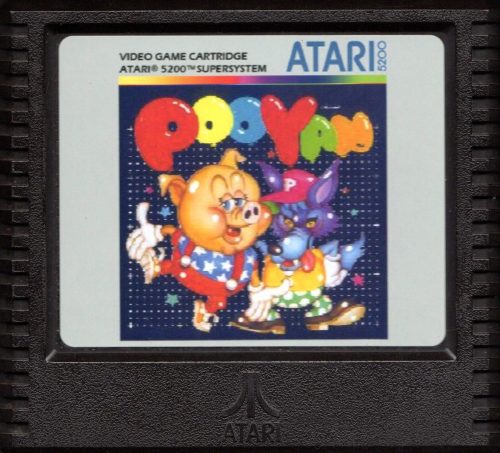
1981 would also see Konami’s first home console release with Strategy X for the Atari 2600. Konami would briefly support the 2600 with a handful of titles for the system, including ports of Frogger and Pooyan, but would soon shift focus to other platforms like the Commodore 64 and Sinclair ZX Spectrum. Konami was also a prolific developer for MSX personal computers, which were extremely popular in Japan and certain parts of Europe and South America throughout the 80s. The MSX (and MSX2) would be a huge part of Konami’s home video games business until the start of the 90s. Some standout MSX titles from Konami include Antarctic Adventure and its sequel Penguin Adventure, King’s Valley I and II, Knightmare: Majou Densetsu, and many arcade ports including Frogger, Super Cobra, and Time Pilot. Penguin Adventure is notable for being the first title that game developer superstar Hideo Kojima worked on. Kojima’s iconic Metal Gear series would begin on the MSX2 in 1987 with Metal Gear and the late release Metal Gear 2: Solid Snake in 1990 along with Snatcher (‘88), and SD Snatcher (‘90). Konami’s own parody series of their famous arcade side-scrolling spaceship shooter Gradius, called Parodius, would first appear on MSX with Parodius: The Octopus Saves the Earth. Konami got in on the Famicom craze in a big way two years after the console had released in Japan starting with a port of Antarctic Adventure in 1985. The Famicom (and Famicom Disk System and NES) would be where many iconic Konami series would get their start with the best example being the legendary gothic horror action-adventure game Castlevania which would receive two direct sequels on Famicom/NES and many more on other systems. Konami also created a number of fantastic arcade conversions that are considered some of the best games on Famicom/NES like Contra, Gradius, Rush'n Attack, TwinBee (the second of which was released for NES as Stinger), and Blades of Steel. The Famicom/NES would mark the birth the famous "Konami Code" which was first introduced in the port of Gradius by developer Kazuhisa Hashimoto who was struggling to playtest all of the levels quickly due to the game’s difficulty. Pausing the game and inputting "Up, Up, Down, Down, Left, Right, Left, Right, B, A, Start" would give the player full power-ups. This command was later popularized by its use in Contra, where it gave 30 lives, and has been included in some way or form in a huge number of games from Konami and other developers and remains a pop culture fixation in video games. We’ll mention that many releases from this time came out on both MSX and Famicom, usually close together. Some of these multiplatforms games were basically the same on both systems while others were much more distinct, perhaps most notably with Vampire Killer, a game in the Castlevania series released for MSX a month after the original FDS game. We’ll also emphasize that while console and PC games were a growing part of Konami’s business at the time that arcade was still a huge factor, as it has been to this day.
Option Get! - Konami in the 90s
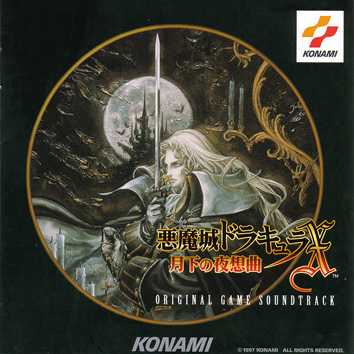
Konami’s huge success starting in the late 80s grew the company immensely, and set them up for further expansion into the next generation where they would develop for the Super Nintendo, PC Engine, and Sega Genesis, as well as new arcade hardware. As before, many of Konami’s releases on these systems were follow-ups to their older series like North American launch title Gradius III on Super Nintendo, Castlevania: Rondo of Blood on the PC-Engine CD-ROM² System, and Contra: Hard Corps on Sega Genesis. Konami would also create new fully original titles during the "16-bit era " like mascot platformer Rocket Knight Adventures (and its confusingly named follow-ups Sparkster: Rocket Knight Adventures 2 and Sparkster), popular dating sim Tokimeki Memorial, and the previously-mentioned Kojima cyberpunk graphic adventure Snatcher. Konami's legal name was changed to Konami Co., Ltd. in June 1991 and the main headquarters were relocated to Minato, Tokyo in 1993. As the company continued to grow separate studios were formed under the Konami Computer Entertainment banner in 1994 and 1995 called KCE Tokyo, KCE Osaka, and KCE Japan. These new studios were split mainly around which series they handled. With an even larger group of talent, Konami continued strong into the 32-bit/early 3D era, heavily developing for Sony’s PlayStation console along with the Sega Saturn, Nintendo 64, and increased support for Nintendo’s Game Boy and Game Boy Color. This time period would see a variety of outstanding games from Konami including hugely influential titles like Castlevania: Symphony of the Night, Silent Hill, and Metal Gear Solid. Konami also became more prolific in developing RPGs with games such as Azure Dreams, Vandal Hearts, and Suikoden, the latter’s first two entries are considered by many the pinnacle of the genre. Two other big events for Konami in the late 90s would be the formation of its Games & Music Division (G.M.D.) and entrance into the trading game market with Yu-Gi-Oh! Starting with Beatmania in 1997, Konami began to produce many high profile arcade music/rhythm games which have been consistently successful. Shortly changing the name to Bemani, the series includes Dance Dance Revolution, Guitar Freaks, Para Para Paradise, Drum Mania, Jubeat, Pop’n Music, and more. Konami continues to be the biggest name in the arcade music games business and has many popular "Bemani Artists" contributing music to the games. Without going into extensive detail, Konami’s trading card game Yu-Gi-Oh!, based on the popular shonen manga of the same name by Kazuki Takahashi, is the best selling trading card game of all time and still one of the most popular to this day. Many video games based on the card game have also been released.
New Millenium - Approaching the Modern Era

The next hardware iteration would basically continue everything up until that point. Konami would release new Castlevania games such as Lament of Innocence on PlayStation 2 and Aria of Sorrow on Game Boy Advance, the Metal Gear Solid series was in full renaissance with games like Sons of Liberty and Snake-Eater, Suikoden received multiple main series sequels and a Tactics spinoff, and the survival horror masterwork Silent Hill 2 brought the company even greater acclaim. Most of these series would continue on PS3/Xbox 360 with new installments, HD remasters, and collections of older titles like the Metal Gear Solid HD Collection Like before, Konami also developed some new series such as the literally solar-powered action RPG Boktai: The Sun Is in Your Hand on GBA, quirky first-person shooter Wii launch title Elebits, and hack-and-slash mech-action game Zone of the Enders. One major change during this period was the formation of Kojima Productions by Hideo Kojima in 2005 mostly made up of the former KCE Japan studio staff. This new studio was a subsidiary of Konami set up to focus on further developing the Metal Gear series. Kojima himself was still very much a part of Konami, becoming vice president of Konami Digital Entertainment in 2011.
Kojima’s Departure and Future of Konami
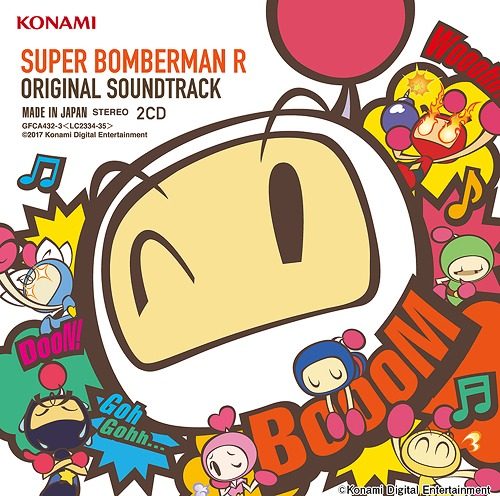
Modern Konami has had its share of controversy, mostly due to its falling out with Hideo Kojima and Kojima Productions over alleged poor treatment from Konami which resulted in the studio closing and Kojima being removed from the executive board of Konami at some point in March 2015. Kojima and Guillermo del Toro’s Silent Hills was also canceled and the demo—called P.T.—was removed from the PlayStation store to much public outcry. Kojima Productions was later reformed as an independent studio, Kojima Productions Co., Ltd., in December 2015 and is no longer affiliated with Konami, now working on Death Stranding. Another notable figure to leave Konami was longtime Castlevania producer/director Koji Igarashi who left in 2014 after poor adjustment to the company’s new mobile-game-focused environment to co-found his own company Artplay in 2014 and is currently working on Bloodstained: Ritual of the Night. A major acquisition for Konami was its merger with legendary development studio Hudson Soft of Bonk and Bomberman fame, which took place in 2012. Konami has recently continued the famous Bomberman series with Super Bomberman R which was a launch title for the Nintendo Switch console in 2017. In terms of the future, CEO Hideki Hayakawa has expressed that they are going to continue to focus on mobile games and their pachinko/pachislot and arcade business. Now under the umbrella of Konami Holdings Corporation, the company has also expanded into other industries like fitness clubs.
Final Thoughts
In closing, we at Honey’s are cautiously optimistic about the future of Konami and hope that the success of Super Bomberman R might prompt renewed interest in creating console games, as we think that Konami makes some of the best! Regardless of that, Konami is undeniably one of the most influential and prestigious game developers of all time and that deserves respect. We hope you enjoyed this article. Let us know your thoughts in the comments section below and be sure to stay plugged into Honey’s for more of all things gaming! We’re off to power down and relax with some Pop’n Twinbee, see ya!
[recommendedPost post_id='129952' url='' title='' img='' class='' widget_title=''] [recommendedPost post_id='235730' url='' title='' img='' class='' widget_title='']
Add Comments